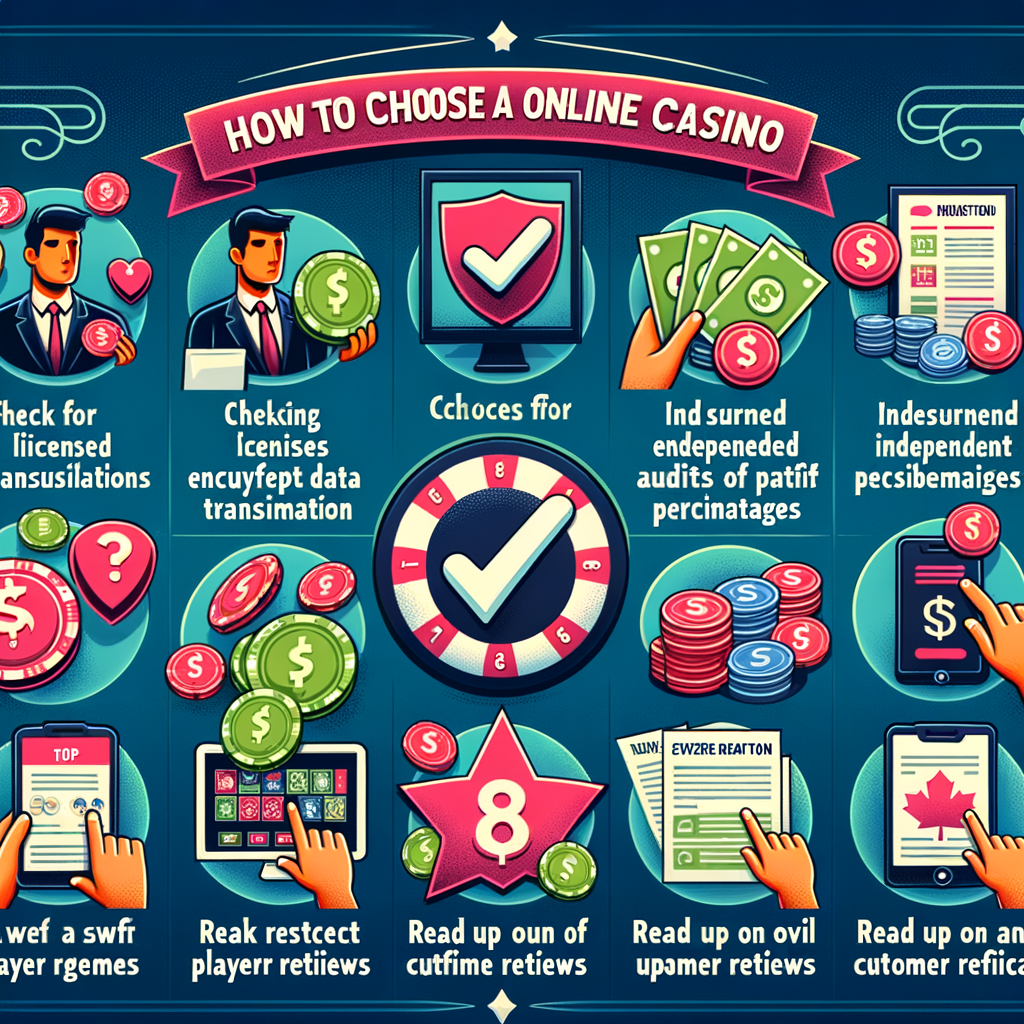Understanding Online Casinos: A Brief Overview of Operations
Online casinos have surged in popularity over the past two decades, providing players with the thrill of gambling from the comfort of their homes. These platforms offer a wide variety of games, including classic table games like poker and blackjack, as well as slot machines and live dealer games. Users can easily access these games through their computers or mobile devices, allowing for convenience and flexibility.
The operations of online casinos mirror those of traditional casinos, but with some key differences. While brick-and-mortar establishments rely on physical infrastructure and staff, online casinos operate through software and algorithms. They leverage technology to deliver an engaging gaming experience, utilizing user interfaces that are designed for optimal interaction. The underlying framework consists of advanced encryption protocols to ensure the security of personal and financial information.
One essential aspect to comprehend is the business model of online casinos. They generate revenue primarily through house edges and commissions on player bets. This means that while players have the chance to win, the casino maintains a statistical advantage over time. Understanding this model is crucial for players who engage in online gambling, as it sets realistic expectations regarding potential losses or winnings.
Finally, the appeal of online casinos is significantly enhanced by promotions and bonuses, which can attract new players or retain existing ones. However, it's essential to read the terms and conditions associated with these offers, as they often come with wagering requirements and restrictions.
The Mechanics of Fairness: How Online Casinos Function
To ensure fair play, online casinos implement sophisticated algorithms and systems that govern game outcomes. At the core of these operations is the Random Number Generator (RNG), which is crucial in determining the results of casino games. RNG technology is designed to produce unpredictable outcomes, ensuring that every game round is independent of previous results.
Fairness in online casinos is also dependent on transparency. Many reputable online casinos provide detailed information about their payouts and odds. This information allows players to understand their chances of winning and helps them make informed decisions when placing bets. Additionally, the best online casinos often publish their return-to-player (RTP) percentages, which indicate the average return a player can expect over time.
Another vital aspect of fairness is the auditing process. Reputable online casinos undergo regular audits by independent third-party organizations to verify the integrity of their games. These audits confirm that the RNG functions correctly and that the outcomes are genuinely random. Players can often find the results of these audits on the casino's website, providing an additional layer of trust.
Lastly, player feedback and community discussions play a significant role in maintaining fairness. Online forums and review websites allow players to share their experiences, helping to identify potentially unfair practices or disreputable casinos. As a result, players have access to a wealth of information about which casinos prioritize fairness and player satisfaction.
Are Online Casinos Regulated? The Role of Licensing Authorities
The regulation of online casinos is a crucial factor in ensuring their legitimacy and fairness. Many countries and jurisdictions have established licensing authorities that oversee online gambling activities. These authorities are responsible for issuing licenses to reputable casinos and enforcing standards that protect players' rights.
Licensing authorities, such as the UK Gambling Commission, the Malta Gaming Authority, and the Gibraltar Regulatory Authority, require online casinos to adhere to strict guidelines. These regulations often encompass various aspects of operation, including game fairness, responsible gambling practices, and measures to prevent fraud and money laundering. Licensed casinos are obligated to maintain a high level of transparency and accountability.
When engaging with online casinos, players should always check for proper licensing. A licensed casino will typically display its license information prominently on its website. Players can verify the authenticity of the license by checking with the relevant authority, ensuring that they are gambling within a regulated environment.
However, the lack of regulation in certain jurisdictions can lead to unregulated and potentially fraudulent online casinos. Players must exercise caution and conduct thorough research before engaging with a platform that lacks proper licensing. This vigilance helps safeguard against the risk of scams and promotes a more enjoyable gambling experience.
Investigating Random Number Generators in Online Gambling
The Random Number Generator (RNG) is the backbone of fairness in online casinos. It is a computer program designed to produce random outcomes for games, from slot machines to card games. RNGs ensure that each game result is completely independent and non-predictable, making it impossible for players to manipulate results.
RNGs are regularly tested and audited by independent organizations to ensure they meet industry standards for randomness and fairness. These tests examine the algorithms for various metrics, including distribution and variance, confirming that players have an equal chance of winning at any time. This level of oversight is crucial because it reassures players that they are engaging in fair gameplay.
To further bolster the integrity of RNGs, many online casinos provide transparency regarding their testing processes. Some casinos even share the results of their RNG audits on their websites, adding an additional layer of trustworthiness to their operations. This transparency helps players feel confident that their gaming experience is fair and enjoyable.
Moreover, technological advancements have led to the implementation of more complex RNG systems. These systems utilize sophisticated algorithms that continuously evolve, ensuring that online casinos remain competitive while providing a fair playing field for all users.
Common Myths About Online Casino Rigging Debunked
The notion that online casinos are rigged is a common myth that often circulates among players. One of the most prevalent beliefs is that casinos manipulate outcomes to favor the house. In reality, reputable online casinos must adhere to strict regulations and undergo regular audits to ensure fairness. These measures are designed to protect both the player and the integrity of the gaming industry.
Another myth is that certain games are more rigged than others. While it’s true that different games have different house edges, this does not equate to rigging. Each game operates on its own set of rules and probabilities, which are established by the RNG. Players should research game mechanics rather than jumping to conclusions about rigging.
Many players also believe that online casinos can track their gameplay to manipulate outcomes. This misconception overlooks the fact that reputable casinos use RNGs to determine game results, which are not influenced by player behavior. In fact, responsible gambling protocols are often implemented to ensure fair play by limiting the casino's ability to intervene in game outcomes.
Finally, some believe that only new players can win, while seasoned players are destined to lose. This is a misunderstanding of how probability works in gambling. Every player, regardless of their experience level, faces the same odds with each game round. Understanding the nature of probabilities and the importance of responsible gaming can help players avoid falling prey to these myths.
Ensuring Fair Play: Tips for Choosing Trustworthy Casinos
When selecting an online casino, players should prioritize fairness and transparency. First and foremost, look for casinos that are licensed and regulated by reputable authorities. Licensing information should be easily accessible on the casino's website, and players can verify this information through the relevant regulatory body.
Additionally, consider casinos that use certified RNG software. Look for casinos that have undergone independent testing and display the results on their sites. This transparency is a good indicator of the casino's commitment to fair play. It’s also beneficial to read reviews and feedback from other players to gauge their experiences with the casino.
Promotions and bonuses can enhance your gaming experience but should be approached with caution. Always read the terms and conditions attached to any offers, and ensure you understand the wagering requirements and withdrawal restrictions. A trustworthy casino will have clear and fair terms regarding bonuses.
Lastly, prioritize casinos that offer responsible gambling features. These include tools for setting deposit limits, self-exclusion options, and access to support for gambling problems. Casinos that prioritize player welfare demonstrate a commitment to ethical practices and fair play.
| Category | Key Features |
|---|---|
| Licensing | Check for licenses from reputable authorities |
| RNG Certification | Look for independent testing results |
| Player Reviews | Read feedback from other users |
| Responsible Gambling Tools | Ensure the availability of player protection options |
Q&A Section
Q: Are all online casinos rigged?
A: No, reputable online casinos are not rigged. They are regulated by licensing authorities and use Random Number Generators (RNGs) to ensure fair play.
Q: How can I tell if an online casino is trustworthy?
A: Look for proper licensing, independent RNG certification, positive player reviews, and responsible gambling features.
Q: What is a Random Number Generator?
A: A Random Number Generator (RNG) is a program that produces random outcomes for casino games, ensuring that results are fair and unpredictable.
Q: Can online casinos manipulate game outcomes?
A: No, reputable online casinos cannot manipulate game outcomes. RNGs ensure that each game's result is independent of previous results.
Q: Are bonuses a sign of a trustworthy casino?
A: Not necessarily. While bonuses can be attractive, it’s essential to read the terms and conditions to ensure they are fair and reasonable.



